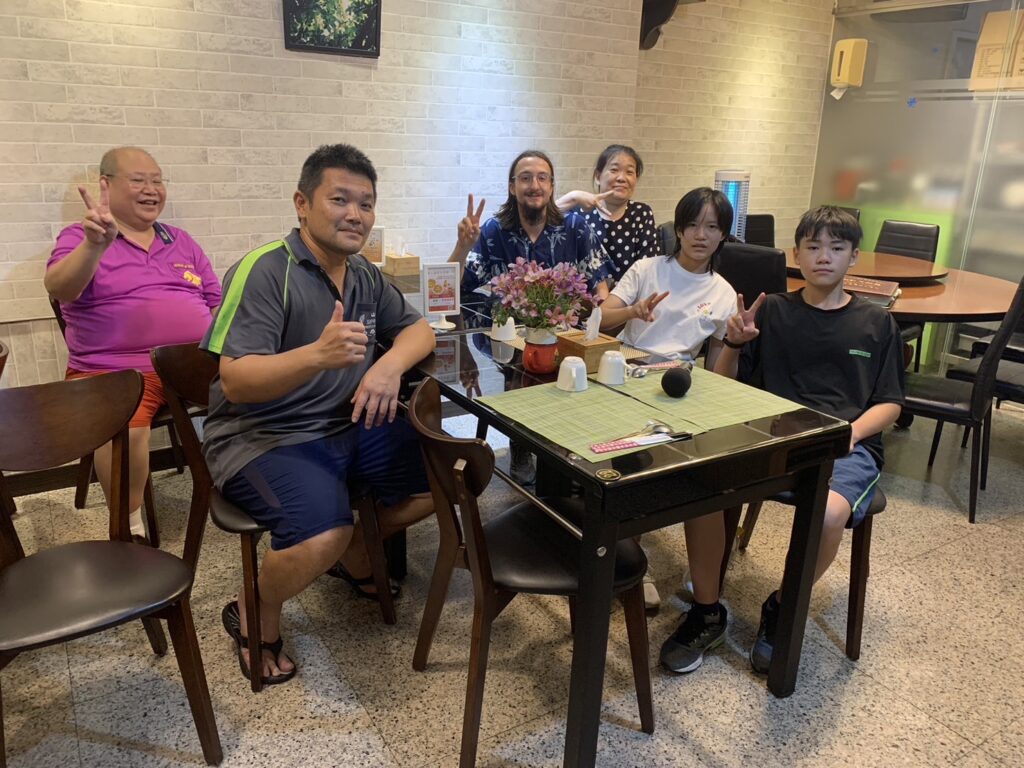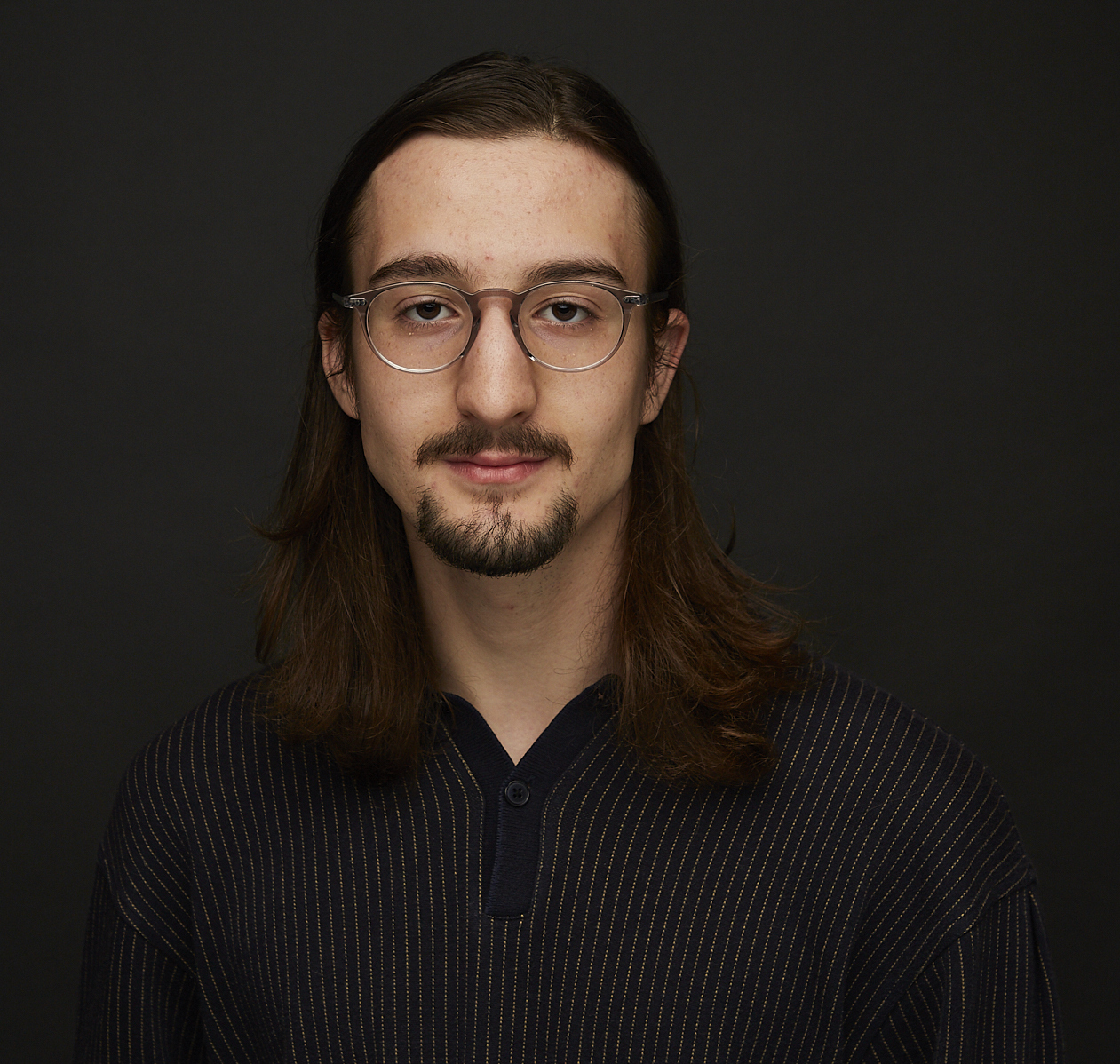
As a part of my study abroad program in Taipei, I spent a weekend with a homestay family. Before we were assigned anywhere, we (students) had to fill out a form detailing information and preferences that might help facilitate a match. As I’m vegetarian, this played into my assignment. By this point I had been vegetarian for less than a year. I decided to become one because I wanted to make personal changes– like becoming sober and eating healthier. I was also inspired a lot by Gandhi and his life story. I was also interested in philosophy and religion like Buddhism. Anyways, I ended up getting matched with a family that runs a vegetarian restaurant.
I first met the mother at an introductory meet and greet at the school. She was very bubbly and explained how they ran this restaurant, and I would be well looked after. We then left in her minivan for their apartment. Their restaurant was on the ground floor, and they lived in an apartment on the floor above. Once we arrived, I got out of the car and encountered a man dozing off in a plastic chair to the left of the restaurant’s green façade. My homestay mom called his name, and he awoke, slightly bewildered. He got up and approached me at the meridian before entering the restaurant, greeting me warmly. He was a large fellow, and I later learned that part of the reason he opened the restaurant was for his health. Nonetheless, I soon met the rest of the family, including a twelve-year old daughter and ten-year old son.
I never bonded much with the homestay kids. I think the age difference, and differences in maturity separated us. I also think they didn’t find me too fun; I was in-the-midst of a reflective state of my life and growth. I was very much in this phase of forming my identity as an individual and might have come off as cool or unreceptive. The head chef of the restaurant was also close with the family. I had my first lunch after I arrived; the food was different takes on “Western” food, things like vegetarian pizza and pastas but also bowls of fruit and snacks. It was certainly a bit of a surprise, as I suppose I was expecting something authentically “Taiwanese,” maybe like a soup with vegetables or tofu, which I had encountered elsewhere. But I also didn’t entirely know what Taiwanese vegetarian food consisted of at that point. From these first impressions though, the restaurant and family were laid back and homey.
Another aspect to this “homeyness” was that the restaurant had a neat karaoke system. There were elevated speakers, and a TV tucked in the corner of the dining room. The father had previously run a technology and sound systems company and installed the machine himself. In my travels around Taipei, karaoke seemed culturally significant. There were karaoke bars all across the city. I later learned that this past time was popularized in Taiwan because of cultural exchange with Japan, which ruled Taiwan for fifty years. After dinner that night we sang Karaoke together. There was this big binder full of index codes of songs. You punched the specific code into the remote and then the song would play on the TV and through the speakers. We engaged in this dialogue by flipping through and singing different songs. I exclaimed that “我喜歡搖滾樂,“ “I like rock music,” and he went on to show me a couple songs. These include the artists Xu Wei, Da Zhuang, and 刀郎. I found it interesting how he was distinguishing the artists as either Taiwanese or mainland Chinese. Retrospectively, I wished I had asked him why, so I can’t say whether this had any larger meaning attached to it.
I had also started growing my hair and beard out longer at the time. I remember the children asking me why, and the father interjected something like “It is hippie,” or “Hippie music,” with a laugh and grin. I kind of laughed along and agreed. I wish I could have learned more about the father’s background. He was in his mid-50s, so I wondered if he had been presently aware of any counterculture domestically or aboard in America. I later learned of the White Terror in Taiwan, a period of heavy political repression by the one-party KMT (government) under the largely inflated claims of communist influence. It was not until 1987 that martial law was lifted, and not until the 90s that the democratic party (DPP) came into power. I wonder how this shaped his life and outlook and also how aware he was of the outside world during this time.
Nonetheless, through this musical experience with the father I felt some kind of connection with a countercultural attitude, but I can’t be entirely sure to make this claim. I never asked him directly. After lunch one day he spoke to me about his life, how he started his technology and audio equipment company, spent a lot of time traveling for business, and then pivoted to build up the restaurant. From this nexus of conversations and comments I got the idea of someone who valued and contained an entrepreneurial spirit. I was certainly forming myself as an individual in my appearance and attitude during this time abroad, so he could have been simply responding to that or pointing out his own connection to it. Either way, it was neat to see his attitude in the specific cultural context and be a little more aware of Taiwan’s history. I think the music was a way to share a bit of our outlooks on the world, but I lacked the context and specific examples to dig deeper towards why. My own self-making was a large part of my experience abroad, and in some ways, it opened up engagement with others, like him, but it also hampered my cultural engagement, in the sense of moving past my own outlook, as well.

Leave a Reply